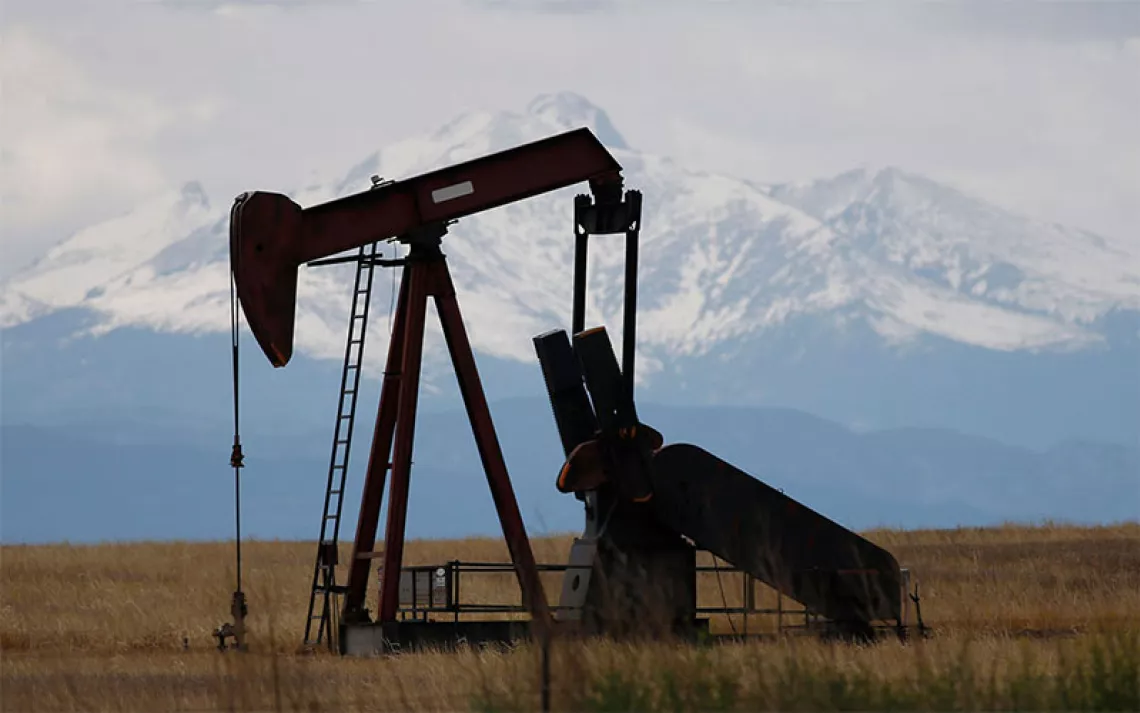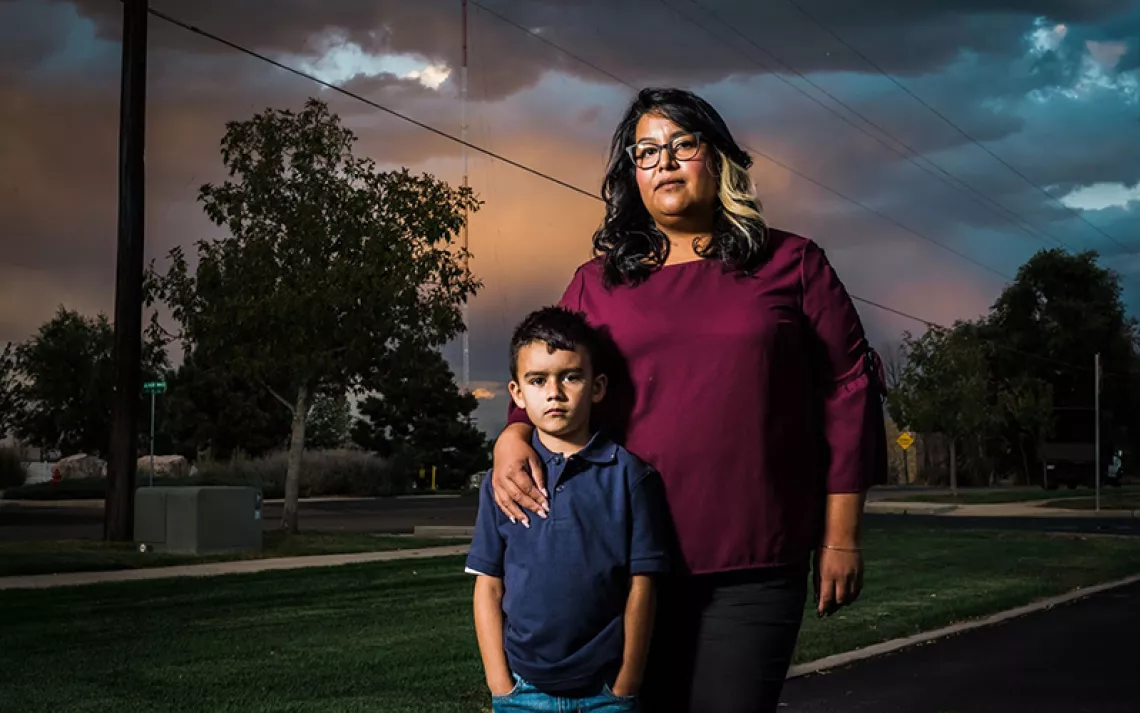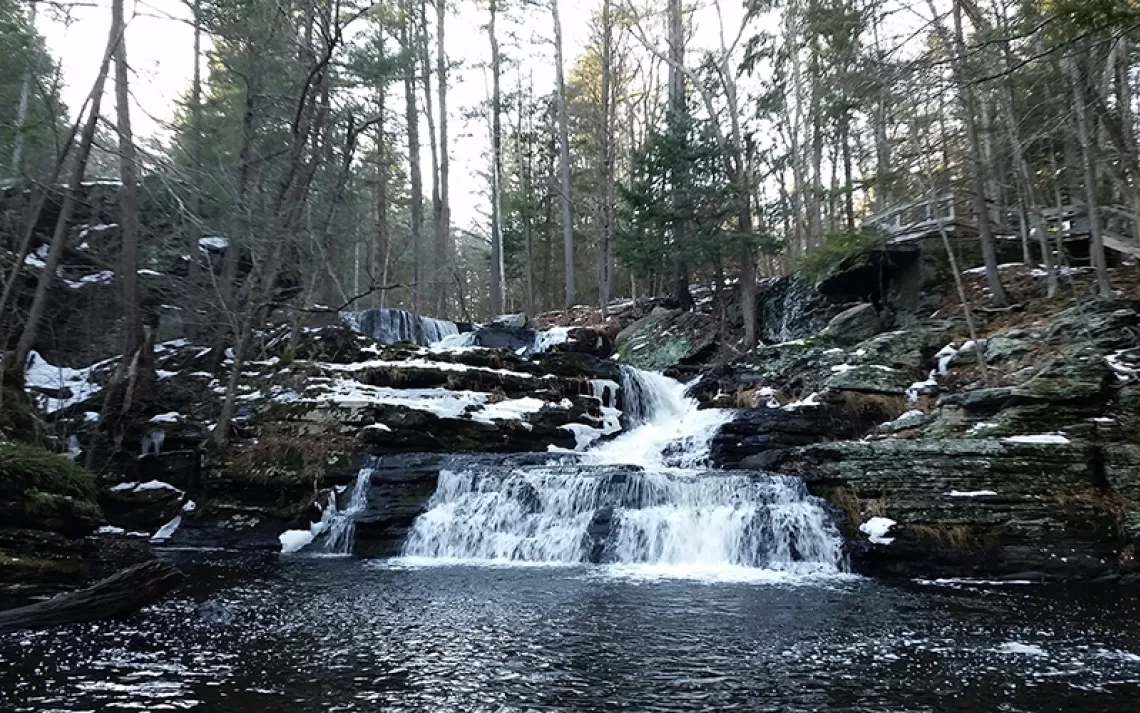Raising Voices to Protect the Flint Hills
First-time Kansan activists work to stop proposed fracking in their prairie

Photos courtesy of Sophia Dembling
In the middle of explaining the economic ramifications of a proposed wastewater injection plant in the Flint Hills of Kansas where she lives, Elexa Dawson interrupts herself.
“This is going to sound weird, but I have to put the phone down,” she says. “There’s a turtle trying to cross the road.”
Weird? Not at all. Anyone who has been enchanted by these tallgrass prairie hills understands that to properly appreciate them, you have to slow to nature’s pace. Sometimes, that means stopping to help a turtle.
 The tallgrass prairie is a complex ecosystem that looks monotonous only when viewed from a car going 65. The prairie is grand in expanse, yet intimate—its serene oceans of grass create a quiet, rustling background to the trill of meadowlarks, the undercurrent hum of industrious insects, and the bumblebee buzzing a foot away.
The tallgrass prairie is a complex ecosystem that looks monotonous only when viewed from a car going 65. The prairie is grand in expanse, yet intimate—its serene oceans of grass create a quiet, rustling background to the trill of meadowlarks, the undercurrent hum of industrious insects, and the bumblebee buzzing a foot away.
At 11,000 acres, the region’s Tallgrass Prairie National Preserve is the largest remaining virgin swath of tallgrass prairie on the continent. Hike deep into the preserve and you can almost imagine what the nation might have looked like when it was blanketed by more than 170 million acres of this land. Today, only four percent of that has survived untouched, much of it in the Flint Hills.
“It’s a phenomenal place and an ecosystem unlike any other,” Dawson says, having rescued the turtle and returned to the phone. “To me, this area is a spiritual place. It’s a place that needs to be respected.”
The spiritual connection argument, however, wouldn’t be enough to stop a proposed wastewater injection well in the Flint Hills. Dawson is one of five women who have requested a hearing with the Kansas Corporation Commission, scheduled for June 29, to protest the well. What most activated these women when they saw the company’s routine notice of intent published in the Council Grove Republican was more concrete: Earthquakes.
Quail Oil & Gas wants to inject as much as five thousand barrels of waste fluid a day more than 2,700 feet into the ground at a site along Diamond Creek, about 14 miles from the prairie preserve, and 100 miles from the Wolf Creek nuclear power plant.
Dawson, a member of the Potawatomi Nation and a musician who has lived in Cedar Point, Kansas, for 11 years, says, “Being from Oklahoma, a lot of my family lives in epicenters of induced seismic activities.” In September 2016, a 5.8 temblor in northern Oklahoma rattled dishes all the way in the Flint Hills, hundreds of miles from the quake’s epicenter. Dawson wants none of that.
As well as worrying about their homes and businesses, residents are concerned for Diamond Creek. “I’ve gone fishing there. A lot of people live along this creek. No one would want this water to be contaminated,” says Dawson. “I don’t know about this particular company, because they have not been very public. I don’t know what their history is, their building standards. They say the threat to surface water is minimal as long as these things are constructed properly, which is the same thing they have been saying in North Dakota. And, there are already leaks there.”
The well’s proximity to the Wolf Creek nuclear power plant is also a concern. Radioactive waste at Wolf Creek is stored in stacked concrete cylinders. “If those topple and crack, it will send radioactivity into the atmosphere, and the prevailing winds in Kansas would blow that right toward the population centers of Topeka, Lawrence, and Kansas City,” says Joe Spease, chairman of the fracking committee of the Kansas Sierra Club.
Until Dawson saw the notice of intent, she didn’t even know there was a Kansas Corporation Commission, or what they did. She might not have even seen the notice, had someone not posted it in a local online forum she frequents. Dawson shared the notice in her own wide-reaching social networks, spurring community involvement—about 30 people wrote letters of protest.
Dawson and four other women independently filed letters of protest and requested a hearing. After a pre-hearing phone call with the KCC, the five joined forces to raise money via GoFundMe for an attorney, which they were not previously aware they would need. “I’ve never needed a lawyer in my life,” Dawson says. “This is all new territory for me.” They raised half the necessary funds within a week of launching the campaign, and as of mid-May, had nearly reached their initial goal of $10,000 (although this will not be enough to cover appeals, if necessary).
 “Even our conservative neighbors understand that the conservation of this place is important,” Dawon says.
“Even our conservative neighbors understand that the conservation of this place is important,” Dawon says.
This well would not be unprecedented; the state already has thousands. As of 2015, Morris County alone had 20. But recent geological surveys, including one by the USGS, has identified southern Kansas as an area at increased risk for human-induced seismic activity. While the Flint Hills are north of this, they have their own geological risk: the Humboldt Fault Zone. “We have the same equation in place,” says Spease.
He points out that public outcry to place restrictions on injection wells in south-central Kansas was effective, so he feels optimistic in Flint Hills’s case. Interest in the upcoming hearing is so great that the venue was changed from Wichita to Topeka, where there is more room, as well as accommodations for overflow crowds. However, when opponents of the well filed a motion to have the original public notice declared invalid because it understated the amount of pressure Quail Oil & Gas plans to use—the notice said 500 psi, the permit application said 650 psi—the motion was denied. And the KCC has decided that a letter opposing the permit written by two state legislators and signed by 28 more and two senators would not be entered into the public record of the case.
Dawson and her cohorts hope their activism will help block the well. But even if they don’t succeed, she already feels they’ve accomplished something, and, like stopping to save a turtle, it involves slowing down and paying attention. This effort has made people aware of the notice of intent developers are required by law to publish, “so if anyone has objections, they can object,” Dawson says. “We’re underusing that muscle. In this case, we were really ready to flex that, and that in itself was a victory. It got people aware of how these things work.”
Update: Quail Oil & Gas lawyers forgot to publish a notice of the hearing, so the KCC rescheduled. It will now take place August 16, at 9 a.m., in Topeka.
 The Magazine of The Sierra Club
The Magazine of The Sierra Club



